Adopting a rescue dog is a noble decision, but it’s not an easy process. You don’t know the full history of the dog, what it had been through, and the breeder where it came from. While the shelter or rescue group can offer a background report on the canine, it’s only a peek at the full story of the doggo. Still, this is just a small issue as compared to the fact that you’re giving a less fortunate canine a second chance in life. All you need to do is nail the questions to ask when adopting a rescue dog.
In this post, I listed some important questions you should ask the shelter before adopting the doggo. This will reveal a lot about the canine and how you will approach life with a new pet.
But before we start the Q&A, let me highlight the importance of being prepared in adopting a dog. Pets aren’t just objects you can send back when you don’t want it anymore. They are creatures with feelings. Make sure that you’re 100% prepared to commit. Take note that pet ownership isn’t just about pets and kisses. There are ugly parts that you have to deal with.
15 Questions to Ask When Adopting a Rescue Dog
Question #1 Are you a shelter or a rescue?
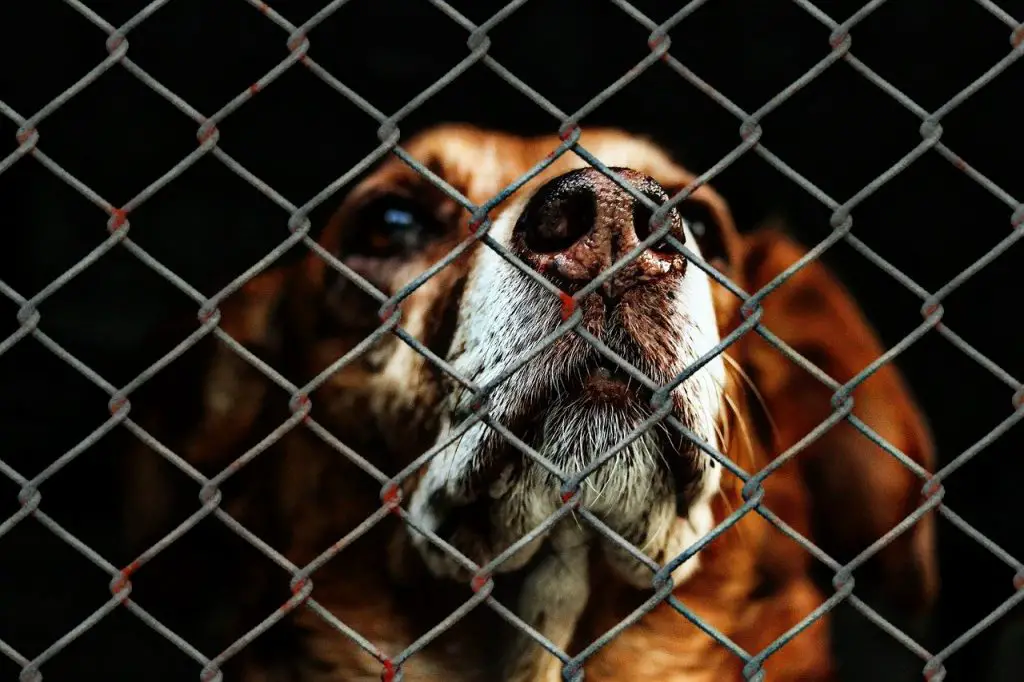
This isn’t widely known, but there’s a big difference between a shelter and a rescue. A shelter is usually government-funded and has a facility to house the pets. Meanwhile, a rescue center doesn’t have enough facilities to keep the pets. Most of the time, they are donation-funded and run by volunteers.
Adopting a dog whether from a shelter or a rescue is fine. Still, it would be more practical to get a dog from a rescue. This way, you can help the staff and open a new slot for another dog to be taken care of. Aside from that, rescue groups go the extra mile of saving abused animals.
But as long as you’re adopting, there’s nothing wrong with your option between the two.
Question #2. When did the dog arrive at the shelter/rescue and why?
This question will reveal a lot about the dog. The reason why the dog ended up in the facility will open up its entire history. You can ask the staff for a history report.
Every rescue or shelter dog has a story. Most of them are heartbreaking. And by knowing this, you’ll have an idea about how the dog will behave in the presence of a stranger (you).
Aside from that, you should ask how long the dog has been in the facility. If the dog has never been adopted for years, you can follow up on why. Maybe the dog has health problems or behavioral issues that cause potential owners to shy away.
Question #3. Does the dog have pre-existing conditions?
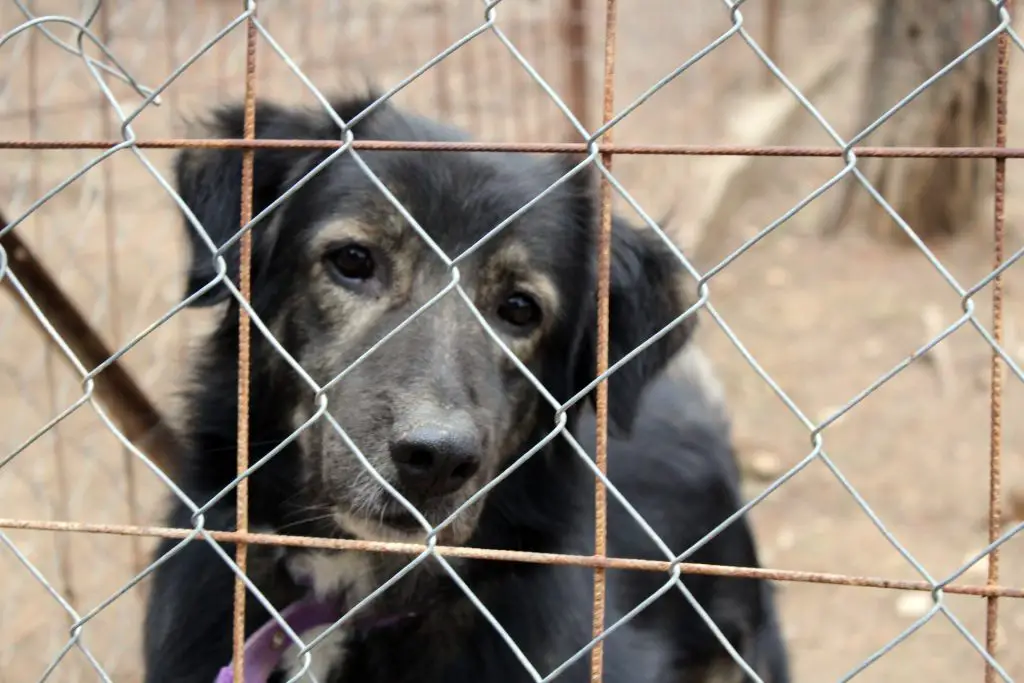
This question is often a make-or-break part for many adopters. A typical adopter wouldn’t like the excess baggage of health problems. They will often opt for a healthier dog.
But if you have the means to support a dog’s veterinary care, you can opt for a canine with health problems. Most of these doggos have been in the shelter for long. Going the extra mile will help a canine survive and live a longer life.
However, if you’re on a budget, an old dog with health problems isn’t the best pick. A healthier and younger pooch suits you better.
Question #4. Has the dog been adopted before?
Some canines in the shelter or rescue facility could possibly be adopted before and just sent back. This is a heartbreaking story and the pooch is often sad and traumatized.
Getting this dog might be a good decision. Pets that have been adopted before could have been housetrained and vaccinated already. There’s also a high chance that the doggo is sociable. Still, it depends on the specific canine you’re planning to adopt.
It’s also important to ask why the previous adoption didn’t work out. Does the dog have issues or the owner just don’t match the canine? The answers here will help you choose the right dog to bring home.
Question #5. Is the dog vaccinated and microchipped?
Vaccinated and microchipped dogs have undergone veterinarian examination. This means that there’s a medical report to show whether the doggo has health problems.
A vaccinated dog is a good choice, but it’s just a small issue. You can adopt any canine and have them vaccinated on your choice of a veterinarian.
Aside from that, ask if the dog has been dewormed. This is very important, especially if you have other canines at home. It will also give you an idea about what other tests and shots you need to ask the vet for. This will also help you plan tour expenses for the dog.
Question #6. What is the dog’s diet?
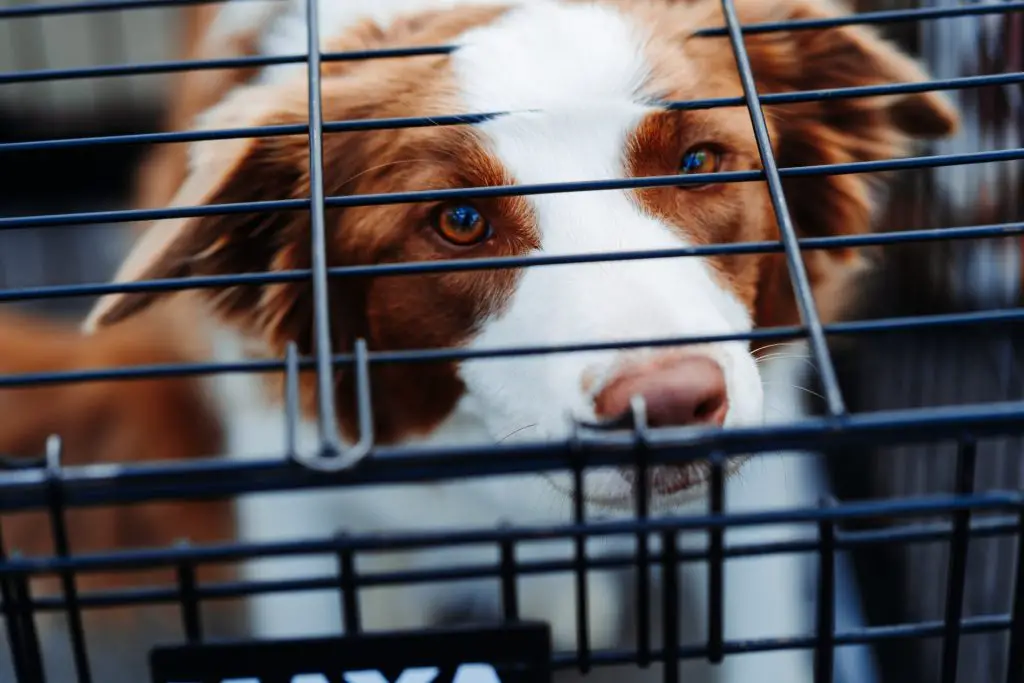
It’s important to know what the staff is feeding the dog. This way, you can purchase the right food or transition the dog to a better one. The vet can also help here.
Don’t forget to ask if the dog has allergies or intolerances. And most importantly, inquire if the dog is a picky eater or has a preferred dog food flavor.
Moreover, the dog’s diet can also reveal something about its health. A pooch that’s on a low-protein diet is probably experiencing kidney issues. As you see, asking the right questions will save you from a lot of trouble and heartache.
Question #7. Is the dog trained to some extent?
Many surrendered dogs have been trained to some level. Ask if the pooch is housetrained, knows obedience commands, or some tricks. It will give you an idea about how much work you need to do to make the dog a disciplined pet.
Remember that even if the dog has been previously trained, it doesn’t guarantee that the pooch will remain skillful. Being in the shelter is a stressful experience, what more being separated from its previous owners.
You have to understand that most rescue or shelter dogs are stressed and scared. This will trigger aggressive tendencies, even on the friendliest breed. Be patient and give the dog enough time to acclimate to you before you make a judgment.
Question #8. Is the dog fixed?
Knowing whether the dog is neutered or not is very critical. Usually, most rescue or shelter dogs will be fixed to avoid the overproduction of puppies. Still, it’s worth checking with the staff so you’ll also know if the vet is licensed.
While some owners like to mate their adopted dogs with another canine, it’s best to get them fixed. Many pups end up in shelters because the owners realized that they can’t handle a new set of litter. It’s an unending cycle, which can be broken through proper neutering or spaying.
If the dog isn’t fixed yet, make sure that you add it to the vet’s check list.
Question #9. Is the dog active? How’s its energy level?
You should ask about the dog’s energy level to know whether it will match your family’s lifestyle and your space at home. Energetic canines often need a yard where they can play and expel their energy. Also, it means that you have to allot time to give the pooch physical and mental stimulation.
Meanwhile, low-energy dogs are more like couch potatoes. They are contented lounging on the couch and having some playtime. Nonetheless, they still require exercise to stay in shape.
You should always match your lifestyle to the dog’s energy level so you won’t end up surrendering the canine back to the shelter or rescue center.
Question #10. Can I foster the dog first?
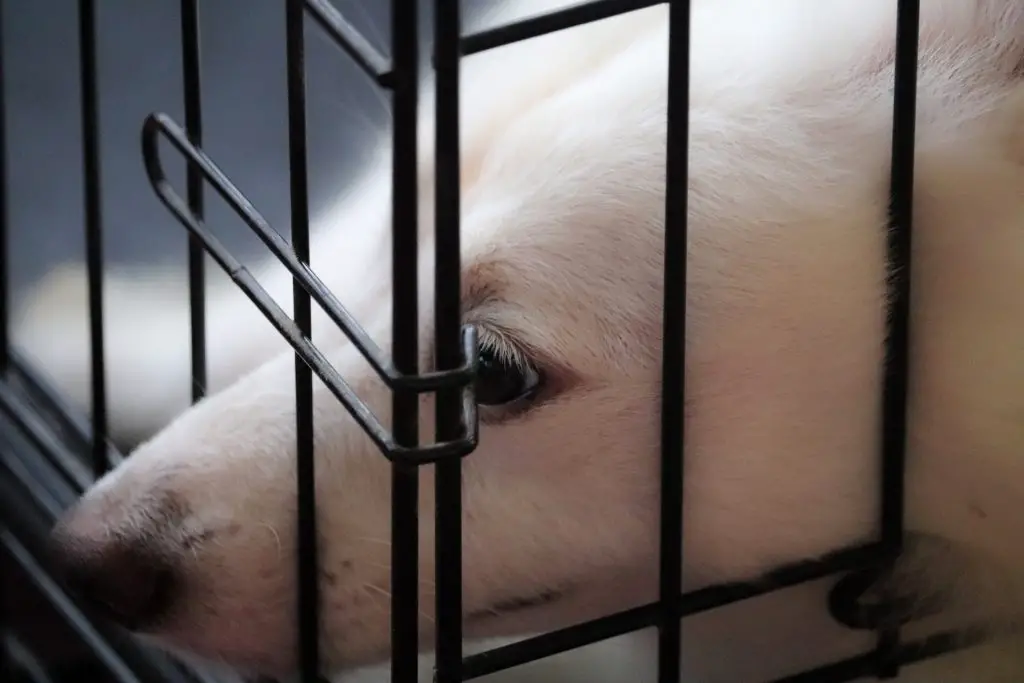
Fostering a dog is a wise move before you commit. It will let you experience having the dog in your home with no strings attached.
Fostering involves taking the dog home and caring for it like your real pet. The duration will vary widely, depending on your agreement with the rescue or shelter. The average fostering duration is around six months. This can be shorter or longer. Most of the time, rescue centers will suggest longer fostering since they don’t have ample facilities to house all the canines.
When the fostering period is finished and the dog doesn’t seem to match your lifestyle, you’re free to bring them back to the shelter.
Question #11. Has anyone been bitten by the dog?
It’s important to know whether the dog has bitten anyone before. Some gated communities are often strict about this part because they think that a dog with a bite history can be a threat to their security. Your landlord may also check this part.
You should also ask the circumstance as to why the dog bit someone, in case the pooch has a record. This will give you a better picture of whether the dog has behavioral problems and aggressive tendencies.
Question #12. Does the dog get along with other dogs and children?
If you have kids, this is very important to know. You surely don’t want to bring home an aggressive canine that will snap on your child. It’s important to ensure that the doggo can be trained to get along with children.
Moreover, those with other canines at home should ensure that the one they will adopt can get along with other dogs. This will save you from the hassle of always breaking dogfights.
So how will you know if the dog will be kid-friendly? Most of the time, the breed is the main determinant. The likes of Akita, Alaskan Malamute, Chihuahua, and Greyhounds aren’t ideal for homes with small kids.
Question #13. Does the dog have aggressive tendencies?
Aggressive dogs are a lot of work in terms of training and socialization. Unless you can deal with this hassle, it’s best to opt for a mellower breed. If the breed isn’t known, you should ask the staff about the behavior of the dog. The staff will be more than willing to assist you in finding the right dog because they don’t want any adopted canines being sent back because of aggressive issues.
Most aggressive tendencies can be controlled with proper training. Still, this requires an experienced and hands-on owner who is willing to spend the time training a dog.
Question #14. Is the dog used to being groomed and handled?
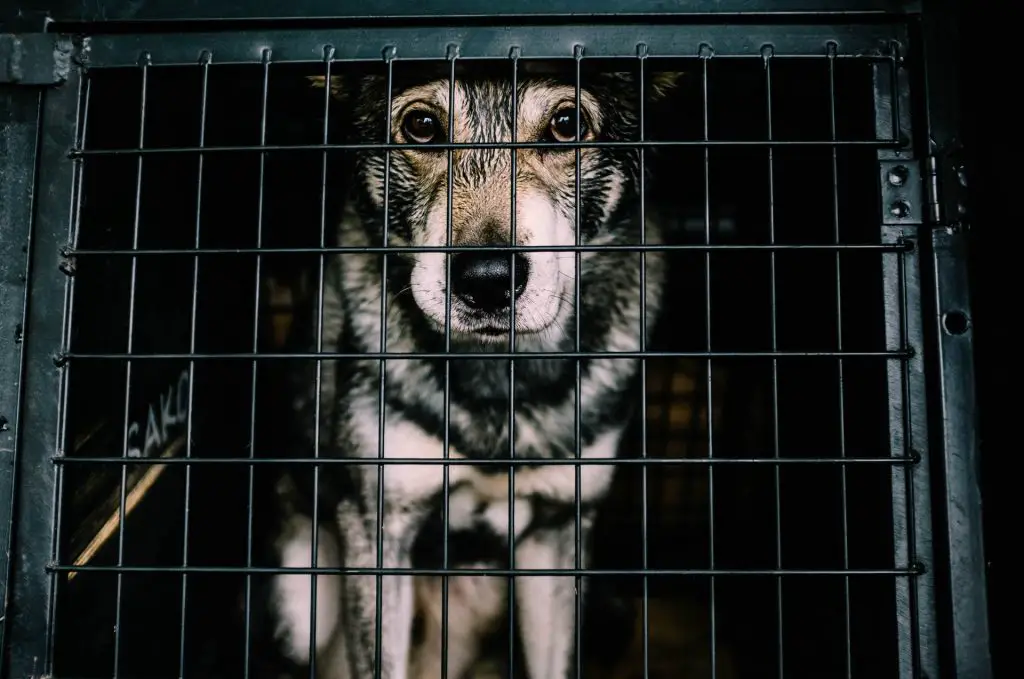
Dogs that are used to being groomed and handled will be easier to deal with. Usually, canines that have been adopted before are amenable to grooming.
If not, you can always train the doggo. Knowing the answer to this will prepare you for whatever will come your way during groom time. You’d want to know the entire package to prepare yourself mentally and physically.
Question #15. Will the shelter take the dog back if the adoption didn’t work out?
Lastly, you should discuss the possibility of the adoption not working out. While it’s sad and tragic, this happens to a lot of dog owners, even after fostering. A big change may happen along the way, which will make it impossible for you to raise the dog. You might need to move to a new city or your future child is allergic to dogs.
It’s best to know your options in the off chance that the adoption goes south. It’s also for the welfare of your dog. You wouldn’t want the pooch to suffer in the end just because you can’t have them anymore.
Sometimes, taking the pooch back to the shelter is the most humane choice. Still, you’d want to avoid this. It’s the reason why fostering and asking questions matter a lot.
Are you planning to adopt a dog? In this video, Jackie lists down some things you need to know before you make the big commitment:
Final words
The right questions to ask when adopting a rescue dog will save you from a lot of trouble. It will largely impact your choice of dog. You should always take your time in researching and inquiring about the dog that suits you. For sure, the shelter staff of the rescue or shelter will assist you in the process. Also, don’t be afraid to foster so you will have a firsthand experience of how it is to own a dog.
